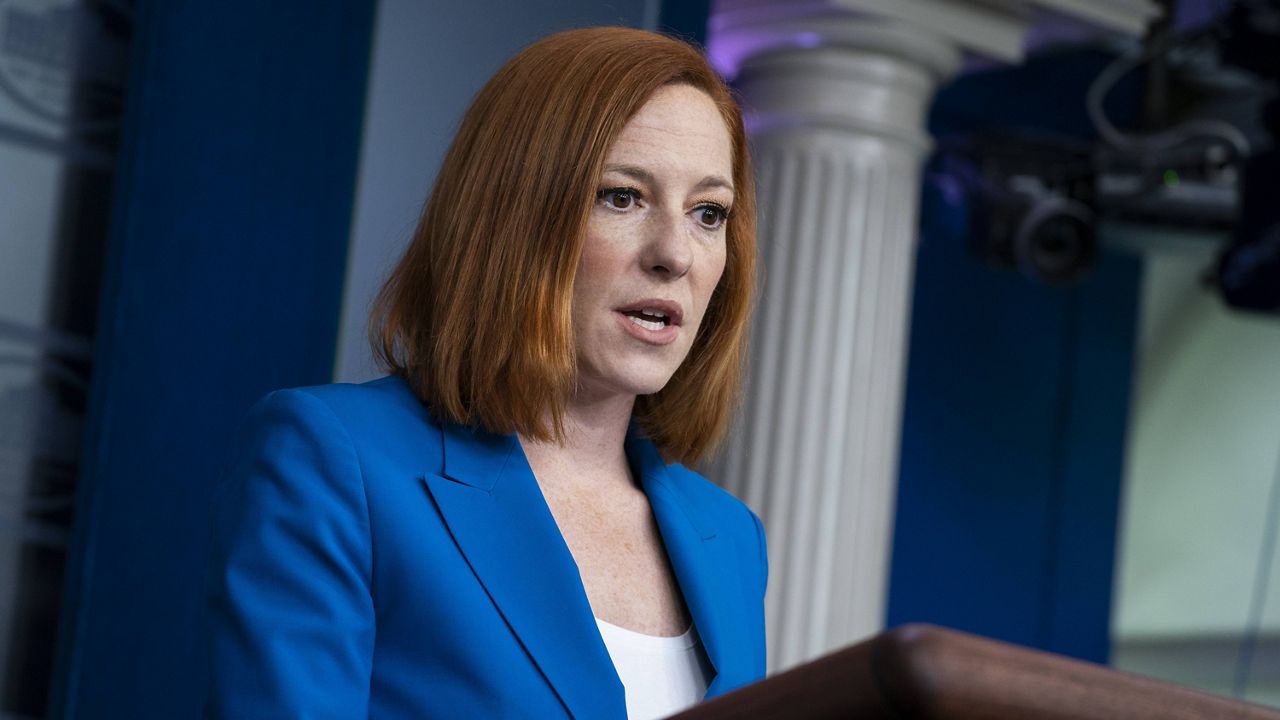President Joe Biden’s ongoing talks with Republicans on an infrastructure deal are just one of “several paths” available toward overhauling the nation’s roads, bridges and more, White House press secretary Jen Psaki said Monday.
What You Need To Know
- President Joe Biden’s ongoing talks with Republicans on an infrastructure deal are just one of “several paths” available toward overhauling the nation’s roads, bridges and more, White House press secretary Jen Psaki said Monday
- Psaki also pointed to Democratic Rep. Peter DeFazio's legislation in the House as well as the possibility of other Republicans and Democrats joining in discussions
- Biden and Sen. Shelley Moore Capito, R-W.Va., will hold another round of talks before the president embarks Wednesday on his trip to Europe, Psaki said
- Biden's latest offer is for $1.7 trillion, while Republicans have proposed a $928 billion deal
Psaki laid out three options that could produce an infrastructure package, a clear sign that the Biden administration is not pinning all its hopes on the president and GOP negotiators reaching an agreement.
Biden and Sen. Shelley Moore Capito, R-W.Va., will hold another round of talks before the president embarks Wednesday on his trip to Europe, Psaki said.
That has been Plan A for months. But on Friday the White House said the Republicans’ latest $928 billion counteroffer still does not meet its "objectives to grow the economy, tackle the climate crisis, and create new jobs.”
Biden initially sought a $2.3 trillion infrastructure package but, trying to win support from across the aisle, has since signaled a willingness to go as low as $1.7 trillion. He, however, has said he wants to see $1 trillion in new spending.
The Republicans’ initial offer was $568 billion. Their latest proposal includes $257 billion in new spending.
The two sides also remain at odds over how to pay for the package, with Republicans firmly opposed to Biden’s proposal to raise taxes on the wealthy and corporations, and the president rejecting the GOP’s plan to use unspent COVID-19 relief aid.
Biden "certainly is eager to see what that discussion can entail, knowing that in any discussion, any negotiation, both sides come closer together,” Psaki said of the next round of talks with Capito. “That's always the objective. He's come down quite a bit. We're looking to see more (from Republicans).”
Psaki refused to characterize this week’s meeting between Biden and Capito as their last chance to find common ground.
“I think we have to see where the conversations go over the next day or so, and we're certainly not going to prejudge them,” Psaki said.
The other two paths, Psaki said, include a separate Democratic-led bill. On Friday, Rep. Peter DeFazio, D-Ore., chairman of the House Transportation and Infrastructure Committee, unveiled a plan for spending $547 billion over the next five years on road, mass transit and rail projects. The committee will mark up the legislation this week.
Psaki said DeFazio’s proposal has “a lot of overlap” with Biden’s American Jobs Plan.
But DeFazio’s efforts might not find Republican support, either. GOP members of his committee on Friday said his “bill moves even further to the left to appease the most progressive members in the Majority’s party."
The third potential pathway, Psaki said, could be other Republicans and Democrats who are eager to pass infrastructure negotiation joining in discussions that could move the parties closer to an agreement.
“So we'll look forward to seeing what they have to offer and what conversation we can have with them” Psaki said.
The Biden administration, if it cannot find bipartisan support, could push for a package to be passed through the budget reconciliation process, which would require just 50 votes and Vice President Kamala Harris’ tie-breaking vote in the Senate.
But that strategy would present its own challenges, namely securing the backing of Sen. Joe Manchin, the moderate Democrat from West Virginia.
While Machin has voiced support for an infrastructure overhaul, he also has insisted on finding bipartisan support. He reiterated to NBC News last week that he doesn’t think Democrats should use the reconciliation process to pass an infrastructure bill.



